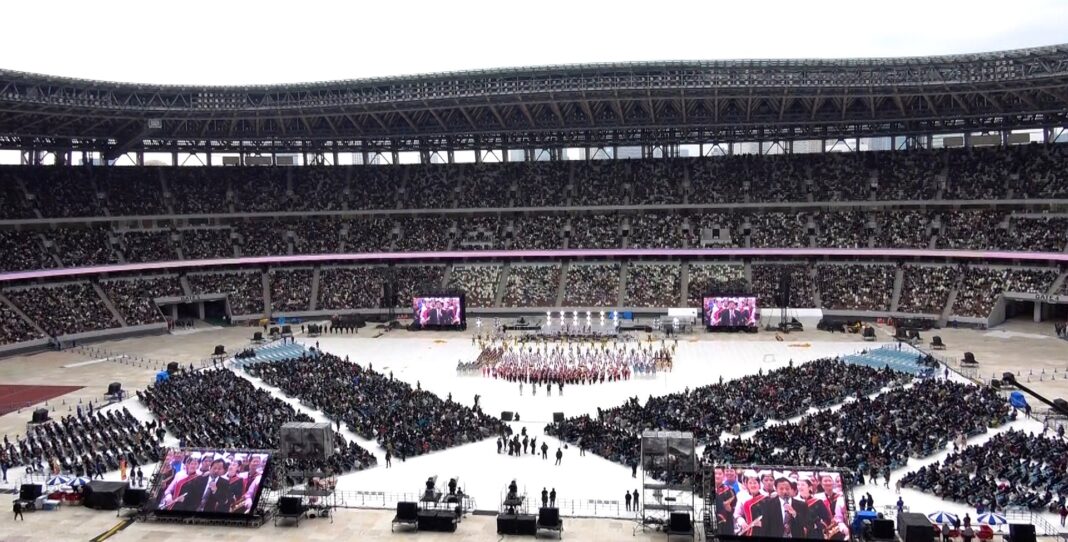By Katsuhiro Asagiri
TOKYO (IPSJ)— In a significant precursor to the United Nations Summit of the Future slated for September, the “Future Action Festival” convened at Tokyo’s National Stadium on March 24, drawing a crowd of approximately 66,000 attendees and reaching over half a million viewers via live streaming. The event, a collaborative effort by youth and citizen groups, aimed to foster a deeper understanding and proactive stance among young people on nuclear disarmament and climate change solutions.
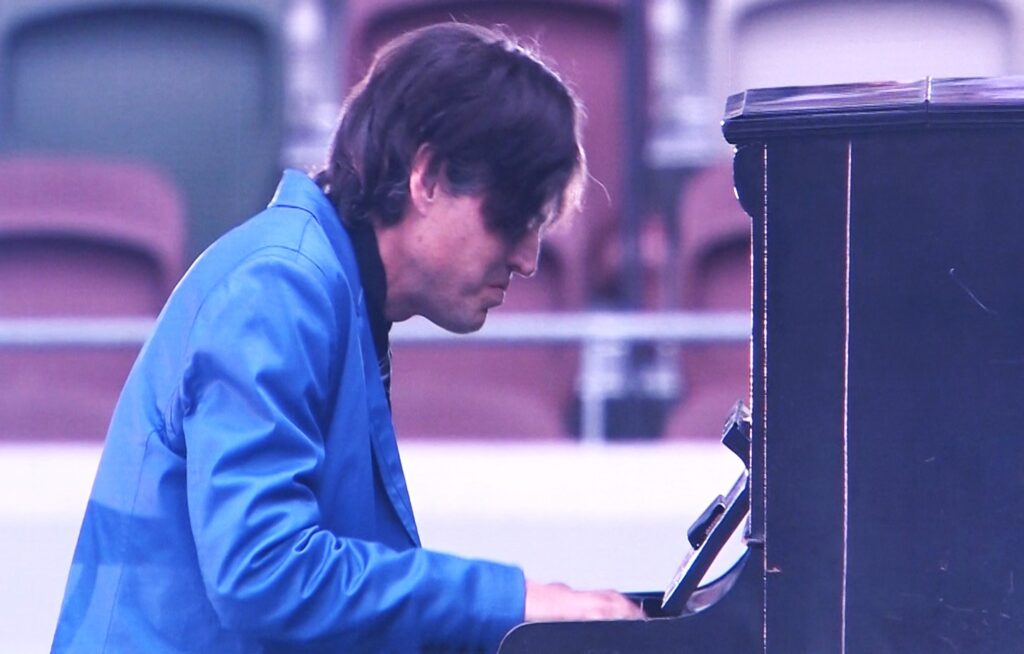
The festival featured interactive quizzes displayed on large screens, offering attendees a collective learning experience about the complex global crises currently challenging the international community. Additionally, a panel discussion with Kaoru Nemoto, director of the United Nations Information Center, and other youth representatives delved into nuclear weapons and climate change, facilitating a deeper exploration of these pressing issues. Adding to the event’s poignancy, performances included one by the “A-bombed Piano,” a relic from Hiroshima that endured the atomic bombing, and others that highlighted the value of peace through music and dances, reinforcing the call for action and solidarity as agents of change.
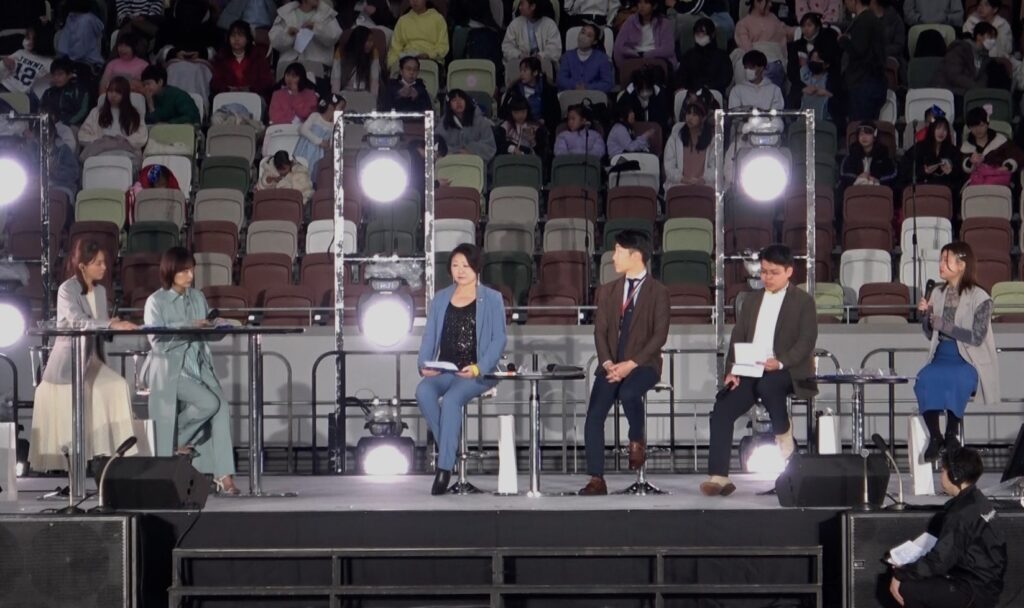
Central to the festival’s impact were the insights shared by a participant of the panel discussion like Yuki Tokuda, co-founder of GeNuine, who shared her insights from a “youth awareness survey” conducted before the event. “The survey revealed that over 80% of young respondents felt their voices were not being heard,” she explained. “This suggests a systemic issue, not merely a matter of personal perception, which is discouraging the younger generation from engaging with vital issues.”
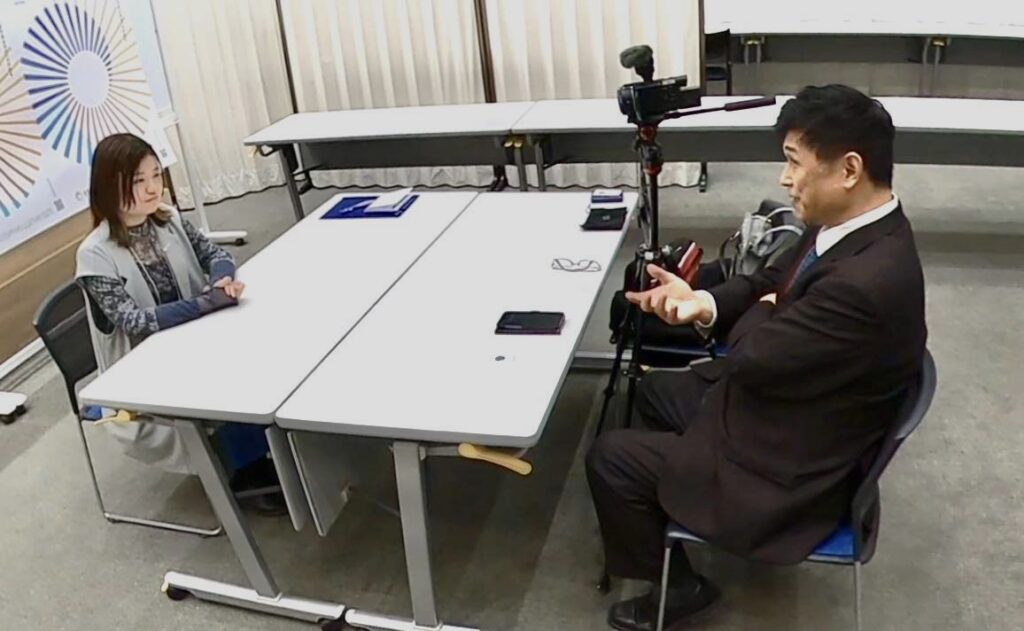
Despite this, the massive turnout at the festival offered a glimmer of hope. “The presence of 66,000 like-minded individuals here today signals that change is possible. Together, we can reshape the system and forge a future that aligns with our aspirations,” Tokuda remarked, emphasizing the power of collective action and the importance of carrying forward the momentum generated by the festival.
Equally compelling was the narrative shared by Yuki Tominaga, who captivated the audience with her dance performance at the event. “I have always been deeply inspired by my late grandmother’s life as a storyteller sharing her experiences of the atomic bombing in Hiroshima” Tominaga shared. “My grandmother would begin her account with her own experiences of the bombing but then expand her narrative to include her visits to places like India and Pakistan, countries with nuclear arsenals, and regions afflicted by poverty and conflict where landmines remain a deadly legacy. She emphasized that the tragedy of Hiroshima is an ongoing story, urging us to spread the message of peace to future generations.”
Reflecting on her grandmother’s profound impact, Tominaga continued, “I once doubted my ability to continue her legacy; her words seemed irreplaceable. But she encouraged me, saying, ‘Do what you’re able to spread peace.’ That inspired me to use my passion for dance as a medium to communicate about peace and the Hiroshima bombing. I aim to serve as a conduit between the survivors of the atomic bomb and today’s youth, making peace discussions engaging and accessible through dance.”
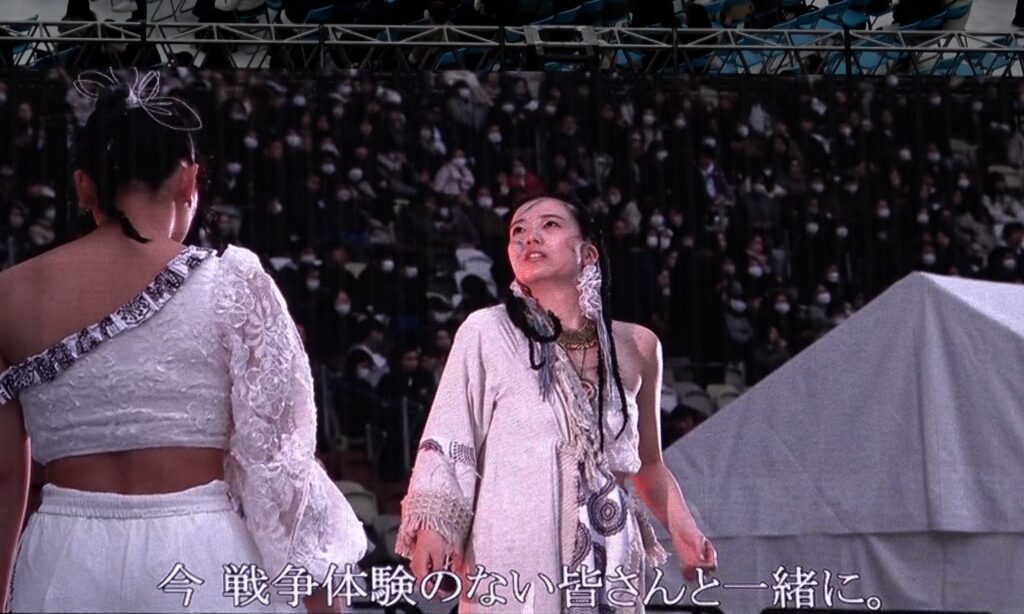
The “Youth Attitude Survey,” which garnered responses from 119,925 individuals across Japan, revealed a striking consensus: over 90% of young people expressed a desire to contribute to a better society. Yet, they also acknowledged feeling marginalized from the decision-making processes. The survey illuminated young people’s readiness to transform their awareness into action, despite prevailing sentiments of exclusion.
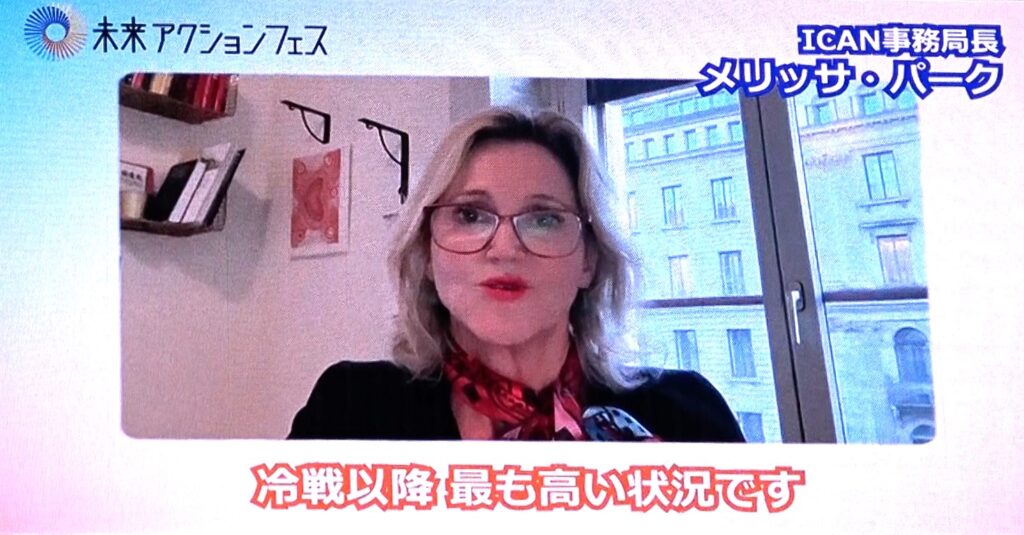
This enthusiasm and potential for change have not gone unnoticed by the international community. High-profile supporters, including Felipe Paullier, UN Assistant Secretary-General for Youth Affairs, Orlando Bloom, UNICEF Goodwill Ambassador, and Melissa Park, Executive Director of ICAN, have all voiced their encouragement, recognizing young people’s crucial role in driving global advancements in sustainability and peace.
The upcoming UN Summit of the Future offers a pivotal platform for youth engagement, with the “Joint Statement” released by the festival’s Organizing Committee—encompassing key areas like climate crisis resolution, nuclear disarmament, youth participation in decision-making, and UN reform—serving as a testament to the collective will to influence global policies. The joint statement articulates the following series of actionable steps.
Tackling the Climate Crisis with Renewed Vigor
The document lays out an ambitious strategy to combat climate change, emphasizing the need to enhance Nationally Determined Contributions (NDCs) to cap global warming at 1.5 degrees Celsius above pre-industrial levels. It calls for a significant uptick in renewable energy capacity and energy efficiency improvements by 2030, alongside providing international support to communities disproportionately affected by climate change, advocating for a framework rooted in climate justice.
A World Free from Nuclear Weapons
On nuclear disarmament, the statement urges an expansion of signatories and ratifying countries to the Treaty on the Prohibition of Nuclear Weapons (TPNW). It advocates for a special session of the General Assembly devoted to disarmament and a decade of nuclear disarmament education, starting in 2025, to share the harrowing experiences of global hibakusha including those in Hiroshima and Nagasaki.
Empowering Youth in Decision-Making
The festival’s organizers propose establishing a youth parliament and a minister of youth affairs to better incorporate young voices in the policymaking process. Additionally, they suggest creating a youth fund to sustain youth-led initiatives aimed at addressing global issues.
Reforming the United Nations for a New Era
The statement concludes with a call for the United Nations to further embrace youth participation and leadership through the establishment of a youth council within the Economic and Social Council. It also recommends the formation of a reform committee for the Security Council, addressing the critical need for modernization in global governance structures.
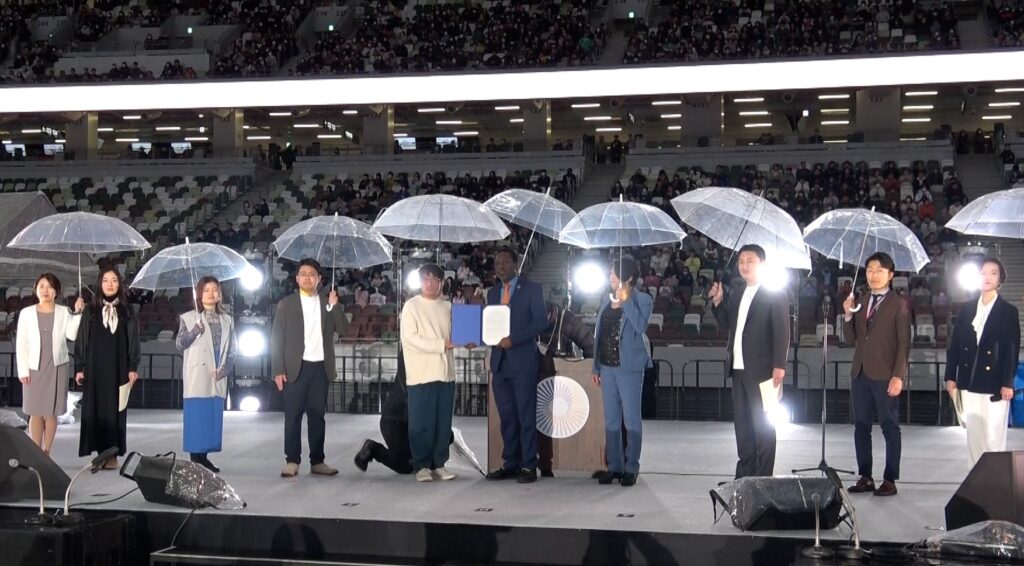
The Future Action Festival, and its joint statement, stand as a testament to the power of youth-led initiatives in shaping a more sustainable and peaceful world. As the global community looks towards the Summit of the Future, the voices from Tokyo echo a clear and urgent message: the time for action is now, with the youth leading the charge.
INPS Japan


